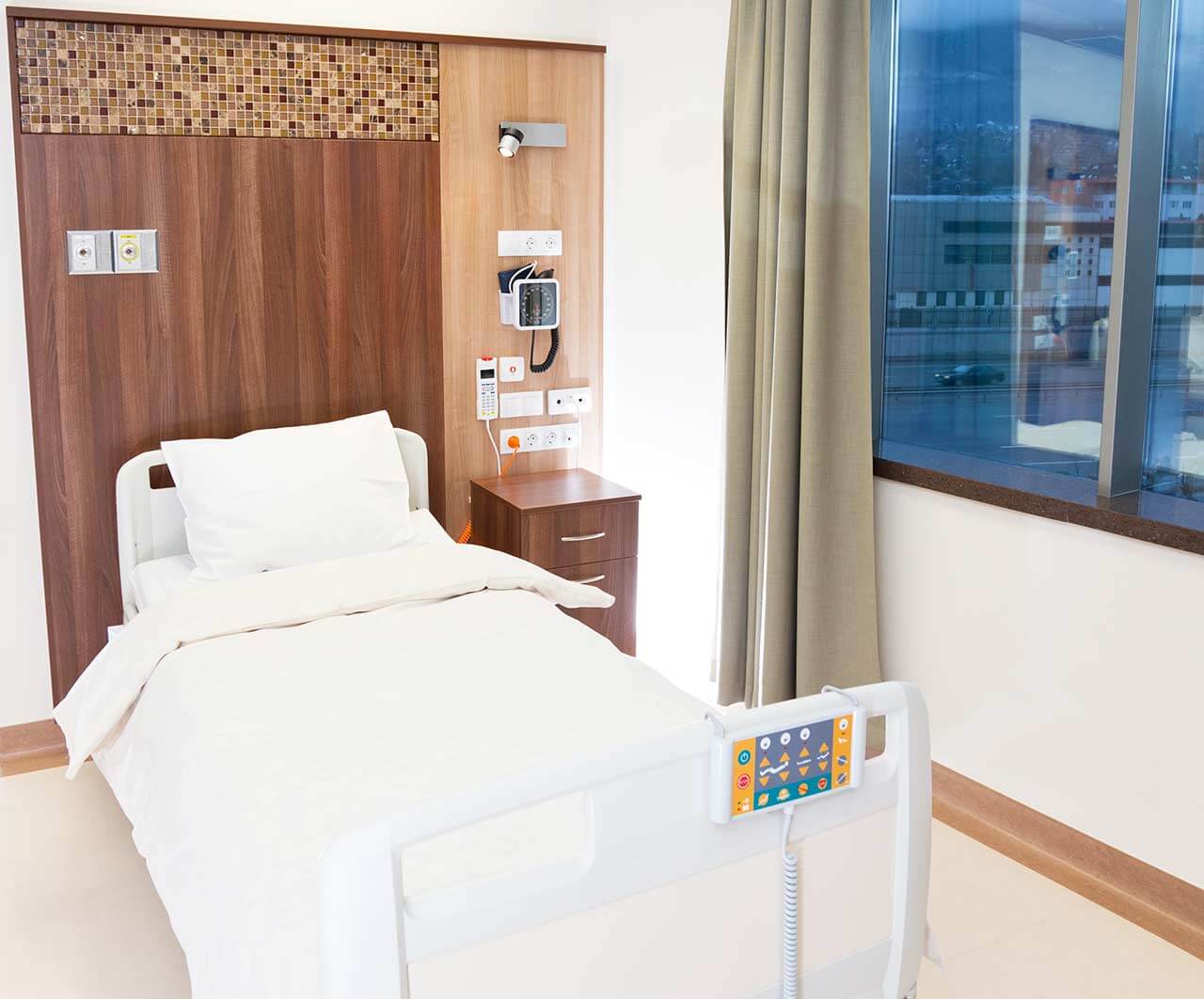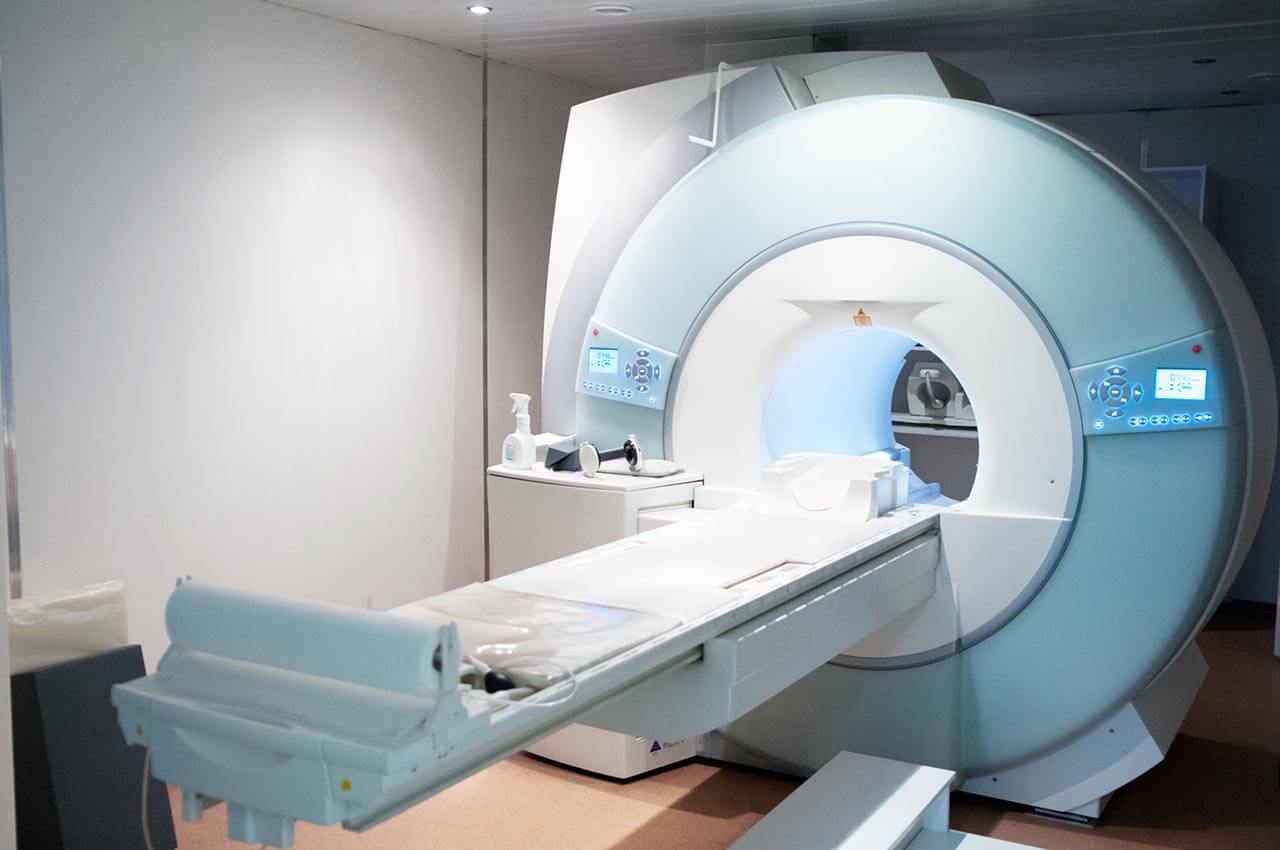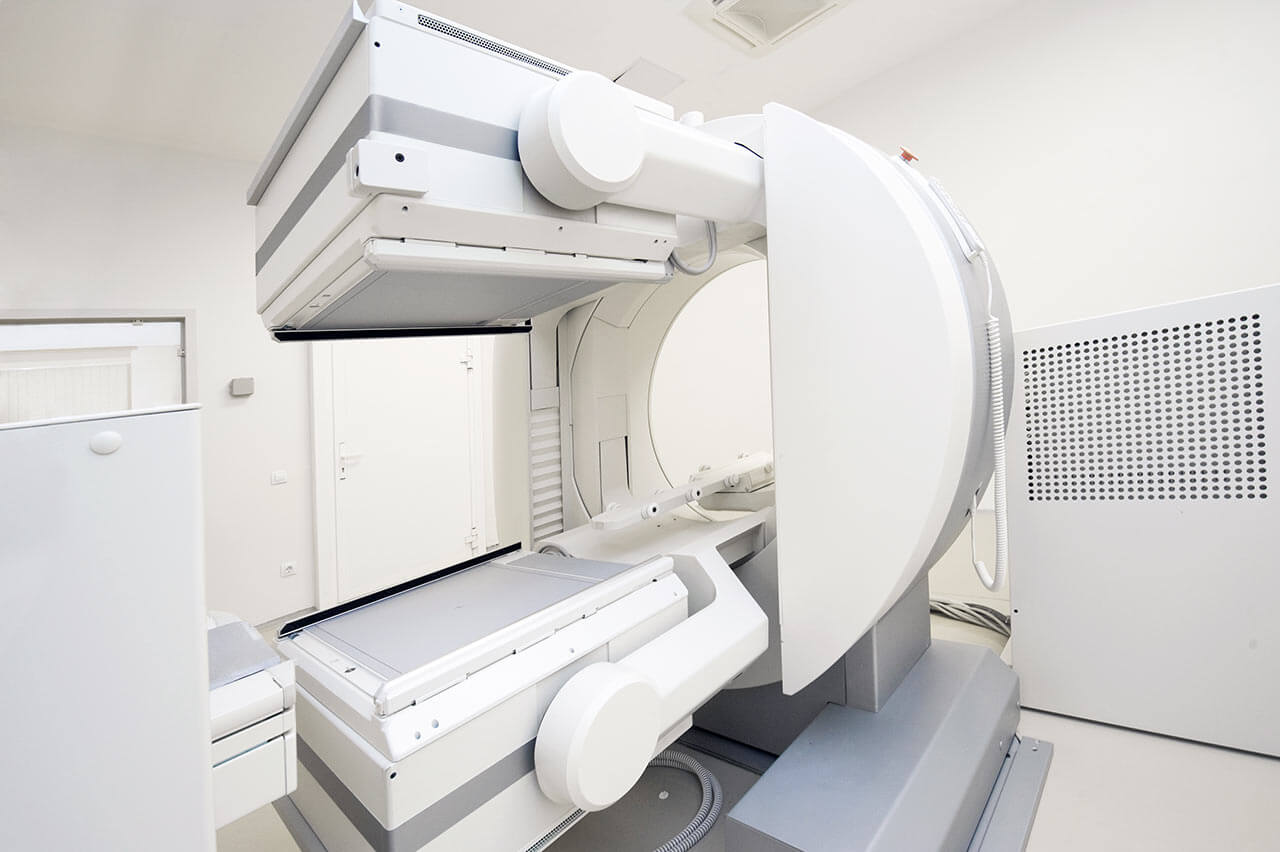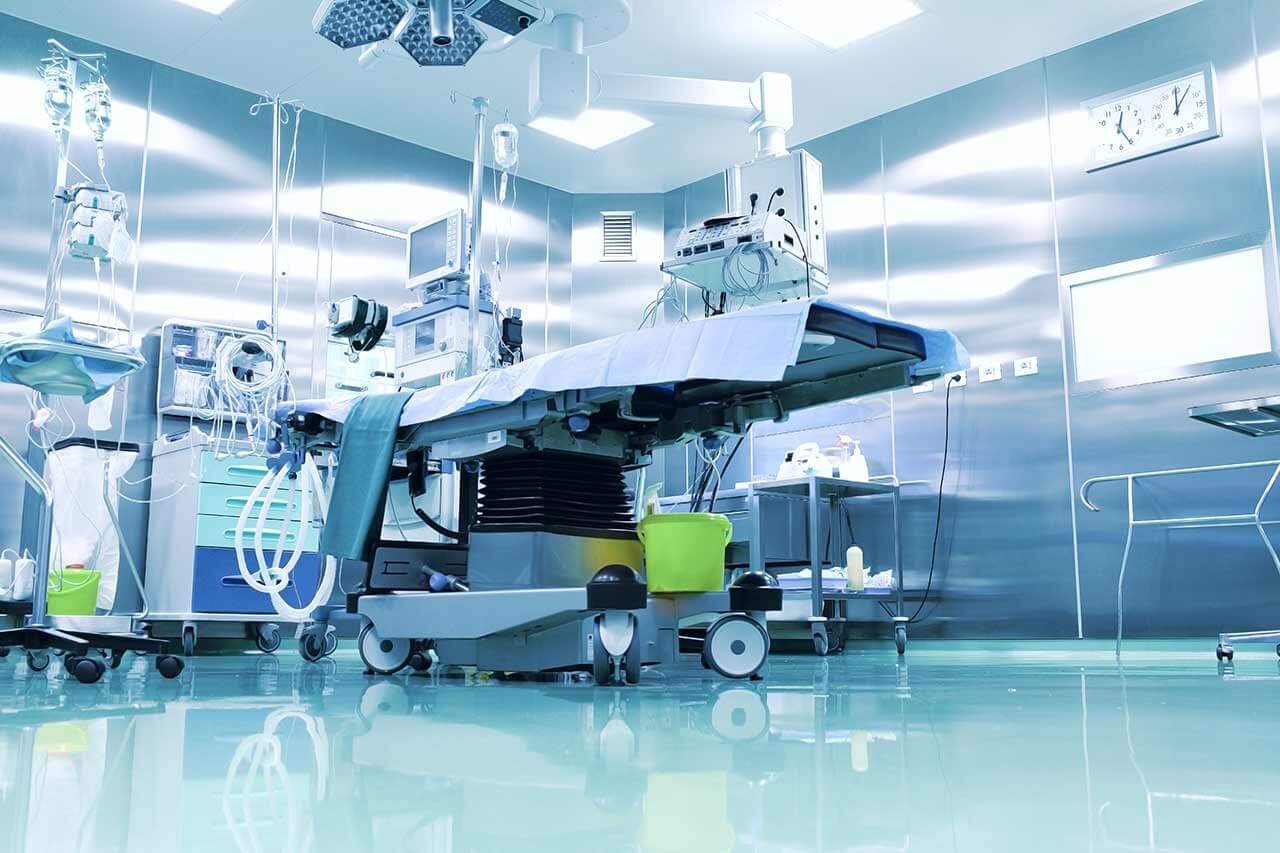
The program includes:
- Initial presentation in the clinic
- clinical history taking
- physical examination
- cardiac examination
- laboratory tests:
- complete blood count
- biochemical analysis of blood
- TSH-basal, fT3, fT4
- tumor markers
- inflammation indicators
- indicators blood coagulation
- measurement of arterial blood pressure
- ECG, echocardiography
- holter monitoring (24h)
- nursing services
- full hospital accommodation
- explanation of individual treatment planм
Required documents
- Medical records
- ECG (if available)
Service
You may also book:
 BookingHealth Price from:
BookingHealth Price from:
About the department
According to the prestigious Focus magazine, the Department of Cardiology, Angiology and Internal Intensive Care at the University Hospital Marburg UKGM ranks among the top medical facilities in Germany specializing in the treatment of heart diseases!
The department offers the full range of modern non-invasive and invasive studies, as well as all interventional procedures and supportive care. Clinical practice includes intensive care for emergency cardiac conditions, modern computer catheter procedures for arrhythmias, implantation of pacemakers, defibrillators and devices for resynchronizing cardiac therapy. The department’s specialists also have excellent qualifications in the treatment of coronary artery stenosis. Particular attention is paid to the catheter-assisted therapy for heart valve diseases. The Chief Physician of the department is Prof. Dr. med. Bernhard Schieffer.
The department is the first certified Cardiac Arrest Center in the land of Hesse. In addition, the department includes a Section for Heart Failure and a Chest Pain Unit certified in accordance with the requirements of the German Society of Cardiology. Thus, the department has optimal conditions to provide high-quality and effective care to patients with diseases of the cardiovascular system.
The department’s range of medical services includes:
- Catheter-assisted diagnostics and therapy
- Emergency care for patients with cardiovascular failure, heart attack and cardiogenic shock (implantable mechanical heart support systems, including Impella micropump, and a mobile heart-lung machine)
- Invasive diagnostics and treatment of diseases of the coronary arteries, heart valves and ventricles (all modern methods of interventional cardiology, including implantation of drug-eluting stents, fractional flow reserve measurement, intracoronary tomography, rotablation, high-risk coronary interventions using implantable heart support systems)
- Interventional treatment of structural heart diseases (transcatheter aortic valve implantation, Valve-in-Valve procedure for the degeneration of biological prosthetic heart valves, closure of a persistent oval window or atrial septal defect, closure of the atrium in atrial fibrillation, MitraClip procedure for mitral valve insufficiency)
- Diagnostics and treatment of heart rhythm disturbances (arrhythmias)
- Long-term ECG
- Event recorder implantation
- Electrophysiological studies
- 3D mapping systems
- Diagnostics and treatment of all diseases of arterial and venous vessels, including rare pathologies in this field
- Imaging diagnostics
- Echocardiography (ultrasound of the heart), including with contrast enhancement
- Stress echocardiography
- Transthoracic echocardiography
- Transesophageal echocardiography
- Functional diagnostics
- Functional diagnostics
- Ergometry
- Pacemaker functioning monitoring
- Stress echocardiography
- Spiroergometry
- Echocardiography
- Transesophageal echocardiography
- Electrocardiography
- Doppler scanning
- Screening of the vessels of the lower and upper extremities, carotid artery
- Emergency cardiological care: imaging diagnostics (CT, MRI), catheter-assisted therapy, replacement maintenance therapy (Impella system, extracorporeal membrane oxygenation, hemofiltration)
- Diagnostics and treatment of rare cardiovascular diseases
- Diagnostic and treatment of lipid metabolism disorders (within the framework of the specialized center)
- Other diagnostic and therapeutic options
Photo of the doctor: (c) UKGM - Universitätsklinikum Gießen und Marburg GmbH
About hospital
The University Hospital Marburg UKGM offers patients modern diagnostics and comprehensive therapy at the international level. As a maximum care hospital, the medical facility specializes in all fields of modern medicine ranging from ophthalmology to traumatology and dentistry. The main areas of specialization of the hospital are surgery, neurosurgery, oncology, nephrology with kidney transplantation and children's medicine.
The hospital is the third largest in Germany. Every year, more than 436,000 patients are treated in two locations of the hospital (Giessen and Marburg): 342,000 in outpatient and 94,000 inpatient settings. The medical facility is the first privatized university hospital in the country.
The hospital staff makes a significant contribution to the development of research activities at the Faculty of Medicine of the Justus Liebig University Giessen and the Philipps University of Marburg. To develop new diagnostic and therapeutic methods, as well as to implement them into clinical practice, the specialists maintain active cooperation in a large number of areas.
The widest range of diagnostic and therapeutic services, the advanced infrastructure and technical base, high quality of treatment and professionalism of health workers contribute to the fact that the medical facility has an excellent reputation not only in Germany, but also far beyond its borders.
Photo: (c) depositphotos
Accommodation in hospital
Patients rooms
The patients of the University Hospital Marburg UKGM live in comfortable single and double rooms made in a modern design and light colors. Each room has an ensuite bathroom with shower and toilet. The pediatric departments provide patient rooms for the joint accommodation of mother and child. The standard room furnishing includes an automatically adjustable bed, bedside table, wardrobe, TV, telephone.
Meals and Menus
The patients of the hospital are offered balanced, healthy three meals a day: buffet breakfast, lunch and dinner. The private kitchen, certified according to DIN EN ISO 9001: 2000, is responsible for providing patients with food and drinks.
If for some reason you do not eat all foods, you will be offered an individual menu. The hospital also has a cafeteria with a large assortment of hot and cold drinks, snacks and desserts.
Further details
Standard rooms include:
Television
All patient rooms are equipped with TV sets. If you have some questions about TV use, please contact medical personnel.
Religion
Religious services can be provided upon request.
Accompanying person
During an inpatient program, an accompanying person can stay with you in a patient room or in a hotel of your choice.
Hotel
During the outpatient program, you can stay at the hotel of your choice. Our managers will help you choose the most suitable option.






